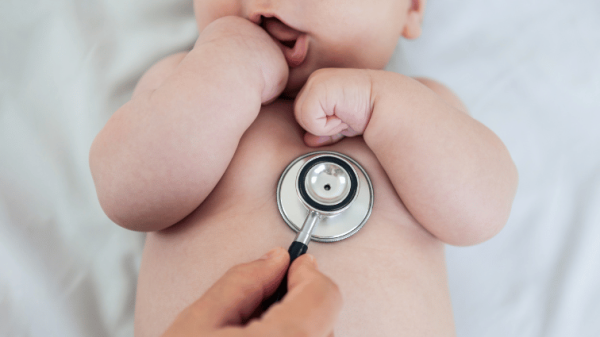Expecting Mothers Benefit from Less Diabetes and Weight Gain, New Study Shows

Pregnant women have a lower risk of gestational diabetes and unhealthy weight gain in cities that tax sugary drinks, according to a first-of-its-kind study of more than 5 million women by UC San Francisco.
The groundbreaking study, published March 24, 2023 in the American Journal of Preventive Medicine, examined how sugar-sweetened beverage (SSB) taxes affect the health of mothers and children immediately before and after birth. Researchers compared mothers who were living in cities that had SSB taxes in effect while they were pregnant to mothers in cities with no SSB taxes. In addition to significantly lowering the risk of diabetes and unhealthy weight gain in pregnant mothers, there was a much lower risk of having an overly small fetus.
“All three of these outcomes are important for health later in life, for both the mother and child,” said senior author Justin White, PhD, associate professor of health economics at UCSF’s Philip R. Lee Institute for Health Policy Studies. “If you can reduce risk at this key developmental stage, it can have long-lasting health benefits.”
In the general population, sugar-sweetened beverages are associated with higher risk of obesity, type 2 diabetes and cardiovascular disease. SSBs are the largest source of added sugar for pregnant individuals, who consume 50% more calories from added sugar than is recommended, the authors wrote.
Better Public Policy
Researchers used U.S. birth certificate data to study 5.3 million pregnant women and their offspring from 2013 to 2019. At the time, the five cities with SSB taxes were Philadelphia, San Francisco, Seattle, Oakland and Berkeley, and data from those cities were compared with dozens of cities without the taxes.
SSB taxes were associated with a 41.4% lower risk of gestational diabetes; a 7.9% lower risk of unhealthy weight gain for gestational age; and 39.1% lower risk of infants being born small for gestational age. Researchers controlled for demographic and city-level factors that could have accounted for differences, such as race, socio-economic status and retail environment.
The taxes didn’t appear to affect blood pressure or body mass index in pregnant women, nor the risk of low birthweight or preterm status in infants.
About 50 countries have implemented SSB taxes in the last decade, and research indicates they have helped reduce consumption of sugary beverages. Research on the health effects is limited, however, with one large study in Mexico showing a reduction in obesity rates while another in Mauritius showed no effects. At the same time, modeling studies indicate that SSB taxes lower the risk of chronic disease in the general population.
“It can be challenging to measure the effects of sugary drink taxes on health outcomes like type 2 diabetes, which can take decades to develop,” said White. “But showing that we can improve health during the relatively short and critical window of pregnancy – and thus have lifelong health effects for the mother and child – makes a strong policy argument for these taxes.”
Authors: In addition to White, authors include Kaitlyn E. Jackson, MPH; Rita Hamad, MD, PhD, and Deborah Karasek, PhD, MPH, all of UCSF.
Funding: The study is supported in part by Karasek’s award from the UCSF-Kaiser Department of Research Building Interdisciplinary Research Careers in Women’s Health (BIRCWH) Program from the National Institute of Child Health and Human Development (NICHD) and the Office of Research on Women's Health (ORWH) [K12 HD052163], as well as in part by Hamad’s award from the National Institute on Diabetes and Digestive and Kidney Diseases (2P30 DK092924).
Disclosures: Please see the paper for a complete list of disclosures.




